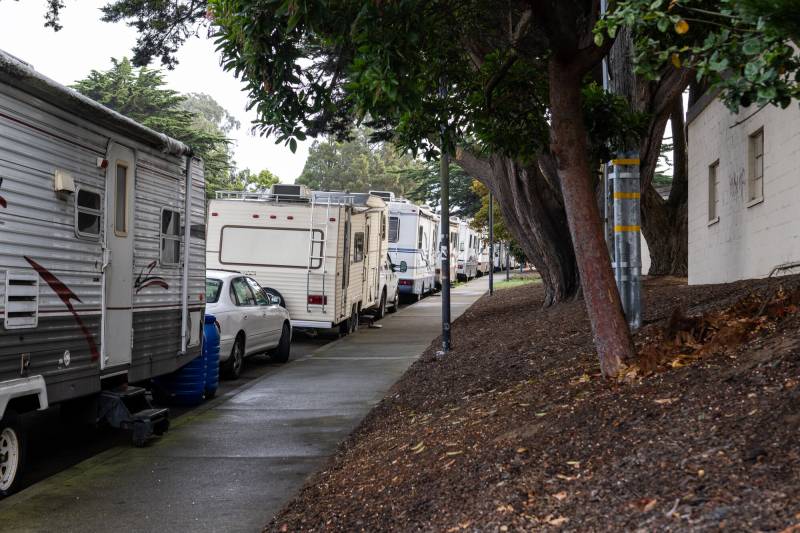In its appeal, filed just days before the policy would have gone into effect, advocates with the End Poverty Tows Coalition argued it unjustly targeted unhoused residents. Supervisors Dean Preston, Hillary Ronen, Shamann Walton, Aaron Peskin and Ahsha Safai signed on to the appeal.
Those supervisors, with the addition of Supervisors Connie Chan and Myrna Melgar, voted to reverse the SFMTA policy after hours of public comment urging them to do so.
The hearing marks the first time the board heard an appeal to an SFMTA decision since the city enacted a review process in 2018.
“An RV is often where people can get out of survival mode, take a breath, and have the mental and emotional capacity to focus on stabilizing and rebuilding their lives,” said Joy D’Ovidio, cofounder of the San Francisco-based nonprofit A Meal With Dignity. “We’ve all experienced the trauma of having a car towed — imagine having your home towed. We must be more compassionate than that.”
The board heard from dozens of San Francisco residents in support of reversing the ban, some of whom were currently or formerly living in their vehicles. Speakers pointed to the lack of shelter space and options for families living in RVs.
No members of the public spoke in support of the SFMTA policy during the hearing. But, in a presentation to the board defending the ban, officials from the SFMTA said it would have been used as a last resort to address health and safety issues for people living in their vehicles, as well as for neighboring residents and businesses.
The agency had planned to implement the policy at a rate of one or two city blocks per month, SFMTA Streets Division Director Viktoriya Wise said during the presentation.
“Until there is a clear indication of meaningful enforcement, such as having your vehicle towed, people don’t always want to accept shelter and our other services,” Wise said.
But Gabriel Medina, executive director of La Raza Community Resource Center who spoke on behalf of the End Poverty Tows Coalition, argued the ban would endanger people who live in their RVs — many of whom are disabled, undocumented, or survivors of domestic violence.
His organization has been involved in outreach with the Winston Drive RV community near Lake Merced. Families in that RV community were evicted earlier this summer after being shuffled around the area for years. Some were moved into long-term housing after the city threatened to tow their vehicles.
